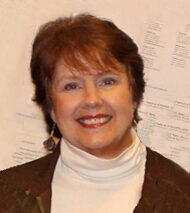
Nancy Huntting, Aesthetic Realism consultant, writes:
Does art have a usefulness much greater than has been realized? Is poetry, when authentic, justice to reality; and can we—and do we need to—learn from it? The latest issue of TRO is thrilling in its answers to these questions, including a groundbreaking description of what is necessary for racism to end. You’ll want to know the exciting clarity and scholarship in “Poetry—& What We Urgently Need,” the current issue of The Right of Aesthetic Realism to Be Known.
The commentary by Ellen Reiss begins:
Dear Unknown Friends:
We are serializing A Statement about Poetry: Some Instances, by Eli Siegel. In this landmark 1970 lecture—so learned yet so immediate, deep and truly lighthearted—he looks at many passages of literary criticism, beginning with Aristotle’s Poetics. I see these passages as both affirming and asking for the magnificent Aesthetic Realism explanation of poetry: Mr. Siegel’s showing that all true poetry “is the oneness of the permanent opposites in reality as seen by an individual.”
In this talk, and others, he has one feel the importance, power, and authentic charm of previous critics. Yet he saw what no other critic had seen: that art, in its technique, shows what reality itself is—and how we thirst to be in our lives. “The world, art, and self explain each other,” he wrote: “each is the aesthetic oneness of opposites.”
Urgent Now
Take a statement Mr. Siegel quotes in the present section of his talk. Along with other passages from William Wordsworth’s 1800 Preface to the Lyrical Ballads, he reads one in which Wordsworth says poetry makes for pleasure through having us feel sameness and difference as inseparable. Wordsworth calls this “the pleasure which the mind derives from the perception of similitude in dissimilitude,” and continues:…Read more